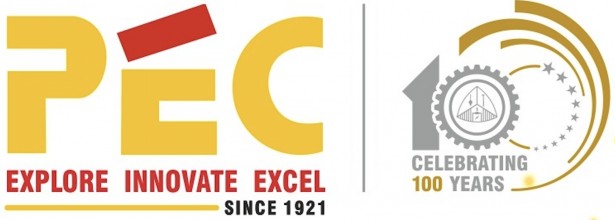B.Tech. (Metallurgical and Materials Engineering)
Programme Educational Objectives (PEOs)
- Graduates will have a thorough knowledge of the key principles and practices in the field of Metallurgical and Materials Engineering and will have applied their materials development skills and knowledge of foundation principles to the design and implementation of practical systems.
- Graduates will be successfully employed in the core field of Metallurgical and Materials industry and will be actively engaged in learning, understanding and applying new ideas and technologies as the field evolves; or will have successfully completed, or is actively pursuing, graduate studies in Metallurgical and Materials Engineering.
- To impart science-based engineering education to develop professional skills that will prepare the students for immediate employment in the Metallurgical and Materials branch of engineering in industry, as against the model that just prepares them for post-graduate education.
- To develop the design capability among students so that they have the ability to participate in creative, synthetic and integrative activities in the field of Metallurgical and Materials Engineering.
- To develop among students breadth of knowledge so that they have familiarity with many important technical areas in other branches of engineering and, in-depth knowledge of one or more specializations to cater industry and research.
- To develop communication skills so that the students are able to express ideas clearly and persuasively, in written and oral forms.
- To develop among students the awareness of, and the competence to be savvy users of information technology.
- To develop the ability to design and perform experiments in the field of Metallurgical and Materials Engineering, and to acquire the ability to interpret and evaluate experimental results.
- To develop among students the ability to work with others, in professional and social settings with curiosity, desire and ability to keep learning through life. Also, to develop an understanding among students of the human, social and business context in which they will utilize their engineering skills.
- To develop a global view among students so that they can appreciate diversity in the world and in intellectual pursuits.
Programme Outcomes (POs)
Engineering Graduates will be able to:
PO1 Engineering knowledge: Apply the knowledge of mathematics, science, engineering fundamentals, and an engineering specialization to the solution of complex engineering problems.
PO2 Problem analysis: Identify, formulate, review research literature, and analyze complex engineering problems reaching substantiated conclusions using first principles of mathematics, natural sciences, and engineering sciences.
PO3 Design/development of solutions: Design solutions for complex engineering problems and design system components or processes that meet the specified needs with appropriate consideration for the public health and safety, and the cultural, societal, and environmental considerations.
PO4 Conduct investigations of complex problems: Use research-based knowledge and research methods including design of experiments, analysis and interpretation of data, and synthesis of the information to provide valid conclusions.
PO5 Modern tool usage: Create, select, and apply appropriate techniques, resources, and modern engineering and IT tools including prediction and modeling to complex engineering activities with an understanding of the limitations.
PO6 The engineer and society: Apply reasoning informed by the contextual knowledge to assess societal, health, safety, legal and cultural issues and the consequent responsibilities relevant to the professional engineering practice.
PO7 Environment and sustainability: Understand the impact of the professional engineering solutions in societal and environmental contexts, and demonstrate the knowledge of, and need for sustainable development.
PO8 Ethics: Apply ethical principles and commit to professional ethics and responsibilities and norms of the engineering practice.
PO9 Individual and team work: Function effectively as an individual, and as a member or leader in diverse teams, and in multidisciplinary settings.
PO10 Communication: Communicate effectively on complex engineering activities with the engineering community and with society at large, such as, being able to comprehend and write effective reports and design documentation, make effective presentations, and give and receive clear instructions.
PO11 Project management and finance: Demonstrate knowledge and understanding of the engineering and management principles and apply these to one’s own work, as a member and leader in a team, to manage projects and in multidisciplinary environments.
PO12 Life-long learning: Recognize the need for, and have the preparation and ability to engage in independent and life-long learning in the broadest context of technological change.
Programme Specific Outcomes (PSOs)
PSO1: Professionally empowering the student as technical manpower in the industry or as an entrepreneur for production analytics and innovations.
PSO2: Able to apply the engineering knowledge to suit the present-day requirements of industry and academia.






